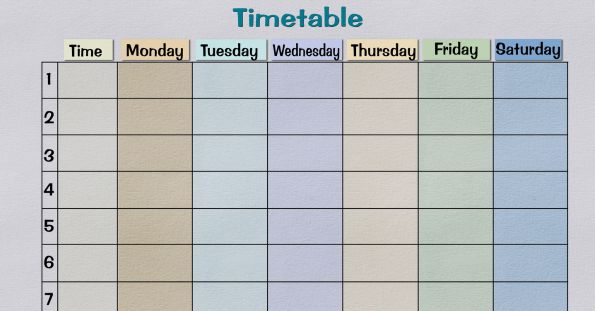
Loading....
Close



The heart throbs before the night of the exam. It is scary not only for the students struggling to cover everything but even for the students with complete preparation. The exam time nervousness can make students forget what they know and can put their efforts and preparation down the drain due to exam fear.
However, fear doesn’t have to control your academics. With the right planning and mindset, you can overcome your fear of exams and regain focus on your studies.
JBM Global is among the top schools in Noida that nurture students in such a way that they are confident about their exam preparedness and excel in academics every time. We recognize that nervousness during exam time is a pretty normal phenomenon and equip our students with the right coping mechanisms to perform well.
In this blog post, we will explore effective techniques on how to overcome exam fear and perform at your best in exams.
Exam phobia may be caused by different reasons. These include:
Exam phobia or fear is one of the most disturbing situations during exams. This fear may lead to bad performance and increase anxiety. It is important for students to overcome this fear. Here are some ways to overcome this fear.

Start your exam preparation well in advance and avoid leaving everything for the last moment. Early revision allows you to cover the study material thoroughly and at a comfortable pace.
It also provides you with ample time to revisit challenging topics, seek clarifications from teachers, or delve deeper into areas you find difficult. By breaking down the study material into smaller portions and revising them regularly, you’ll build a stronger foundation of knowledge and feel more confident during the actual exam.
Also Read : Importance of Co-Curricular Activities for Students

Creating a well-structured timetable is an essential step to manage your study sessions effectively. Allocate specific time slots for each subject, keeping in mind your strengths and weaknesses.
Be realistic in setting study hours, ensuring you have enough time for breaks and leisure activities. A well-organized timetable helps you maintain a balanced study routine, reducing the last-minute rush and preventing burnout. Stick to your schedule as much as possible, but also be flexible enough to adjust it if needed.
A study plan is different from a timetable as it outlines the specific topics or chapters you need to cover each day or week. Break down your syllabus into manageable chunks and assign them to different study sessions.
Having a study plan not only keeps you focused but also gives you a sense of accomplishment as you complete each segment. Remember to set realistic goals and celebrate your progress along the way.
Also Read : Nurturing Success: Hard Work, Dedication, Determination
While it’s essential to identify and focus on your weaker subjects or areas, neglecting other subjects entirely can lead to imbalances and anxiety. Distribute your study time evenly among all subjects, giving adequate attention to each one. Avoid spending too much time on one subject while neglecting others, as it can contribute to feelings of unease during the exam.

One of the best ways to reduce anxiety is to make short and concise notes on your own. Make notes of important formulas, information, people, dates, equations, or incidents. While you study, making these notes helps you remember everything. Through this, you can easily revise important information while preparing for exams.
Also Read : Embracing Life’s Lessons for Personal Growth
Adequate sleep is crucial for optimal cognitive function and memory consolidation. During exam preparation, ensure you get enough restful sleep each night. Lack of sleep can impair your ability to concentrate, retain information, and manage stress effectively. Establish a consistent sleep schedule and create a relaxing bedtime routine to improve the quality of your sleep.
Studying for long stretches without breaks can lead to mental fatigue and decreased productivity. Incorporate short, regular breaks during your study sessions to recharge your mind. Take a walk, do some stretching exercises, or engage in activities that help you relax and refresh.

Group studies can be beneficial for understanding difficult concepts, discussing study material, and gaining new perspectives. Interacting with peers can boost motivation, alleviate feelings of isolation, and create a supportive study environment. However, choose study partners who are focused and serious about their studies to ensure the group remains productive.
Also Read : How Can We Nurture Children’s Organic Growth?

Deep breathing exercises, meditation, and progressive muscle relaxation can help calm your mind and body. Regular practice can make you more resilient to anxiety. It is very important that you recognise your body-mind connection and use positive self-talk to relax your body and mind for optimal exam performance.
Also Read : 5 Proactive Strategies for Building a Better Life

Procrastination can lead to increased stress and anxiety as the exam date approaches. Avoid delaying your study sessions and tackle your study plan in a disciplined manner. Start studying early, stick to your study schedule, and break down your tasks into manageable chunks to stay on track and avoid last-minute cramming.
Experiencing exam fear is a common thing. If you go through exam phobia, remember that you are not alone. Talk to your parents, teachers, or friends and share your concerns. Think of escaping this fear and focusing more properly on your studies. The tips mentioned above will help you overcome exam fear and prepare better for exams. You will also stay refreshed before and during the exams with these practices.
JBM Global, among the top schools near Sector 137 Noida, equips students with tools and techniques to keep exam nervousness at bay and perform exceptionally well academically. We aim at the holistic development of students and let them pursue their interests in different sectors that interest them for a rounded personality. Enroll your child in our productive learning community.
It is natural for students to experience exam fear. The fear of scoring badly in exams, lack of confidence, lack of preparation, difficulty in understanding the subjects, and difficulty in focusing are some reasons why students experience this fear.
It can affect students in many ways. It may create a disturbance while studying, make them forget what they have studied, and may even interrupt their focus. Exam fear may also lead to anxiety or exam fever, having a bad effect on students’ performance.